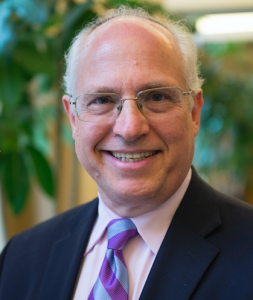More than half of practicing physicians exhibit characteristics of chronic stress and burnout. This trend may begin earlier with the observed decline in empathy during medical student training and alarming rates of burnout in medical and other students in the health professions. In this presentation, Dr. Haramati will review published outcomes on curricular interventions to help students and faculty manage stress, foster empathy and build resilience. He will also share his perspective on why it is essential to incorporate mind-body techniques into the training curriculum for all health professionals—something that will require both skill and courage.
Presenter Bios
 Aviad “Adi” Haramati, PhD, is Professor of Integrative Physiology in the Departments of Biochemistry, Molecular & Cellular Biology and Medicine (Nephrology), Director of the Center for Innovation and Leadership in Education (CENTILE), and co-director of the CAM Graduate Program at Georgetown University Medical Center. He received a PhD in Physiology from the University of Cincinnati College of Medicine and came to Georgetown in 1985 after spending 5 years at Mayo Clinic. His research interests were in renal and electrolyte physiology, but now focuses on medical education and rethinking how health professionals are trained.
Aviad “Adi” Haramati, PhD, is Professor of Integrative Physiology in the Departments of Biochemistry, Molecular & Cellular Biology and Medicine (Nephrology), Director of the Center for Innovation and Leadership in Education (CENTILE), and co-director of the CAM Graduate Program at Georgetown University Medical Center. He received a PhD in Physiology from the University of Cincinnati College of Medicine and came to Georgetown in 1985 after spending 5 years at Mayo Clinic. His research interests were in renal and electrolyte physiology, but now focuses on medical education and rethinking how health professionals are trained.
Dr. Haramati taught physiology for over 35 years and has been recognized with multiple awards including the Alpha Omega Alpha Robert J. Glaser Distinguished Teaching Award from the Association of American Medical Colleges, and the Master Scholar Award from the International Association of Medical Science Educators (IAMSE). He served as IAMSE’s first president and hosted two IAMSE meetings (in 1999 and 2003).
Dr. Haramati led a broad, NIH-funded educational initiative to incorporate complementary and integrative medicine into the medical curriculum at Georgetown; served as the founding Vice-Chair of the Consortium of Academic Health Centers for Integrative Medicine, and chaired several of the Consortium’s International Congresses on Integrative Medicine and Health. In October 2015, he convened the first CENTILE Conference on Strategies to Promote Resilience, Empathy and Well-being in the Heath Professions. Dr. Haramati seeks to improve medical education across the globe, especially with regard to the intersection of science, mind-body medicine and professionalism and has been a visiting professor at over 80 medical schools around the world.